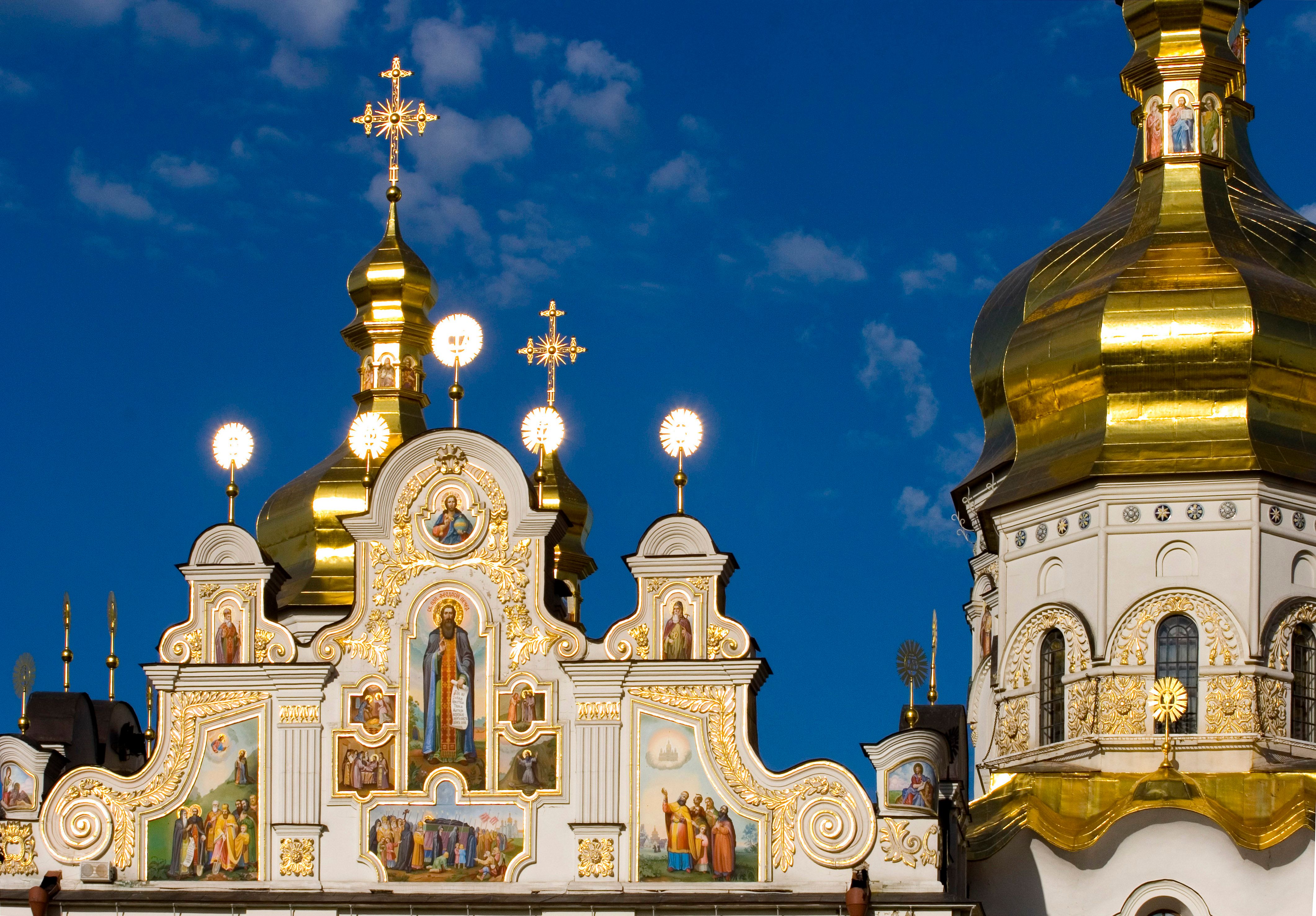The First Year of Autocephaly of the Orthodox Church of Ukraine

First Year of the OCU
The church was established in December 2018 through the unification of two structures not recognised by other Autocephalous Orthodox Churches: The Ukrainian Orthodox Church-Kyiv Patriarchate (UOC-KP) and the Ukrainian Autocephalous Orthodox Church (UAOC). Only a small part of the structures of the Ukrainian Orthodox Church-Moscow Patriarchate (UOC-MP), which was previously the only church officially recognised as canonical in Ukraine, joined the OCU. In January 2019, despite Russia’s protests, the Patriarch of Constantinople Bartholomew I (who is the honorary head of the Orthodox Church) granted the OCU autocephaly, granting its ecclesial independence. In parallel to the OCU in Ukraine, the UOC-MP exists as an autonomous church dependent on the Russian Orthodox Church (ROC).
The granting of autocephaly to OCU initiated the process of changing the affiliation of parishes that had been connected to UOC-MP. As of January 2020, only about 5% of UOC-MP structures have done so (the OCU currently has about 7,000 parishes, while UOC-MP has about 12,000). The slow pace is the result of a lack of support for unification on the part of UOC-MP clergy, who remain under the influence of the RCP hierarchy. The change of affiliation is constrained, among others, by court trials initiated by UOC-MP related to the procedure of the re-registration of parishes with the local administration. There are also conflicts in local communities, usually resulting from an attempt to block the switchover of a given community by a clergyman belonging to UOC-MP. Not without significance is the moderate interest of the parishioners themselves in actually belonging to a given church. In a survey by the Razumkov Centre from January this year, 34% of Ukrainians declared that they refer to themselves as a member of the OCU and 14% as UOC-MP, while 27% described themselves as “simply Orthodox” and 14% declared they were not religious or not related to any church.
The new church situation in Ukraine has led to legal disputes. In December 2018, Ukrainian parliament obliged by law religious organisations whose decision-making centre is located in Russia to change their name to reflect this dependence. Under the new regulations, UOC-KP structures should re-register as “Russian Orthodox Church in Ukraine”. This did not happen. In April 2019, the Kyiv Administrative Court considered the new law to be unjustified state interference in the activity of a religious organisation (the Ukrainian constitution emphasises the separation of state and church). In February, the Constitutional Court, at the request of MPs from the pro-Russia Opposition Bloc, began examining the bill for compliance with the constitution.
Recognition of the OCU by Other Orthodox Churches
Granting autocephaly to the OCU did not mean that it was automatically recognised by other canonical Orthodox churches. So far, three out of 14 canonical Orthodox churches have done so—in addition to the Patriarchate of Constantinople, the Greek Orthodox Church (October 2019) and the Patriarchate of Alexandria (November 2019). This should be considered a moderate success for the OCU, as the process of recognition by other churches, usually for political reasons, may take years or even decades. The OCU is favoured by the Orthodox Church of Cyprus, Bulgarian Orthodox Church, and the Orthodox Church of Czech Lands. It is possible that one of them will decide to recognise the new church soon. The establishment of the Romanian Vicariate (a special administrative structure) of the OCU in the Ukrainian region of Bukovina in July 2019 also increases the chances that the Romanian Orthodox Church will officially accept the OCU.
The OCU cannot count on recognition from the ROC, which, over autocephaly for the OCU, not only broke canonical unity with the Patriarchate of Constantinople but also with those churches that officially recognise the new Ukrainian church. Two other Orthodox churches have officially declared they will not recognise the OCU—the Polish Autocephalous Orthodox Church and the Serbian Orthodox Church.
The Antioch and Jerusalem Patriarchates and the relatively new Autocephalous Orthodox Church of Albania also stand against the OCU. Their lack of recognition is primarily due to the politics of these churches (e.g., the Antioch Patriarchate, like other churches in Syria, closely cooperates with the Bashar al-Assad regime, which is supported by Russia), and is also motivated by doctrinal considerations (the principle of only one church structure in each country).
Political Significance
The OCU’s autocephaly is significant in Ukraine’s independence from Russia because it strengthens Ukrainian national identity, limits Russian influence in Ukraine by weakening the role of the UOC-MP and some in its clergy, who openly support Russia’s aggression against Ukraine and the self-proclaimed “republics” in the east. The OCU’s autocephaly may also allow Ukraine to represent its interests independently in global religious organisations or meetings (e.g., World Council of Churches, Pan-Orthodox Councils) in the near future. As the UOC-KP and UAOC were not recognised by other Orthodox churches, they could not participate in those bodies, so Ukrainian interests were de facto represented by the Russian Orthodox Church through its authority over the UOC-MP.
The recognition of OCU independence is of great importance in Ukrainian internal politics. It was one of the main elements of the election campaign of former President Petro Poroshenko, who openly supports the OCU. He was personally involved in the negotiations on autocephaly with the Constantinople Patriarchate and then the organisation of the Unification Council in Kyiv. Volodymyr Zelensky’s victory in the presidential election in Ukraine in April 2019 revealed a decline in the everyday importance of autocephaly. Zelensky does not favour any Orthodox church. As a presidential candidate, he stressed that the authorities should not interfere in religious matters. After taking office, he pointed out that religion is an element dividing Ukrainian society (however, polls indicate that more than half of Ukrainians consider the tomos—the autocephaly decree—to be an element uniting society). Some of Zelensky’s advisors (e.g., Serhiy Sivokho, a presidential advisor on Donbas matters) even see the UOC-MP as an ally in the potential reintegration of areas currently out of government control.
Conclusions and Perspectives
In the near future, the OCU will become neither the dominant, nor the only Orthodox structure in Ukraine. This is because of the slow pace of the transition of UOC-MP parishes to the OCU and the related administrative and legal problems, as well as the lack of political support of the central authorities for the new church. It should be expected that the process of changing affiliation from a parish with UOC-MP to one with the OCU will slowly progress. Although Russia has tried to use the conflicts concerning parish affiliation to fuel public protests in Ukraine, it has failed to spark them at a larger scale. In the future, however, the affiliation of the most important Orthodox places of worship in Ukraine—Pochayiv Lavra and Kyiv-Pechersk Lavra, currently belonging to the UOC-MP—may become a flashpoint.
Tense relations in the Orthodox world have not yet influenced Orthodox communities in Poland. The Polish Autocephalous Orthodox Church has not recognised the OCU, taking the position that the only canonical church in Ukrainian territory is the UOC-MP, autonomous within the ROC. This position hasn’t resulted in an increase in the number of Orthodox Christians of Ukrainian origin living in Poland. However, the PAOC, which does not officially recognise the OCU (neither previously the UOC-KP nor the UACP), has introduced the Ukrainian language to the liturgy in some parishes and offers pastoral care to Orthodox Ukrainians regardless of their church affiliation.




